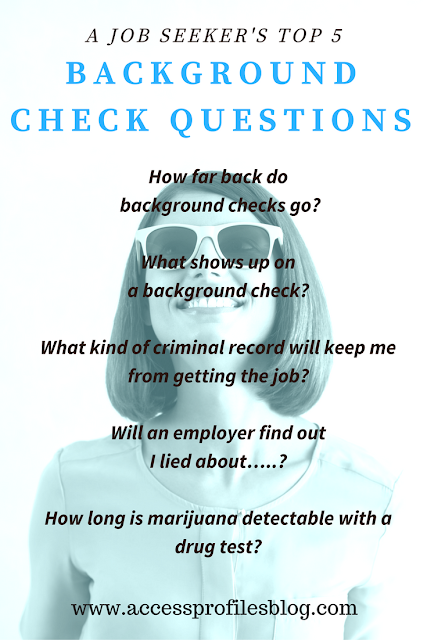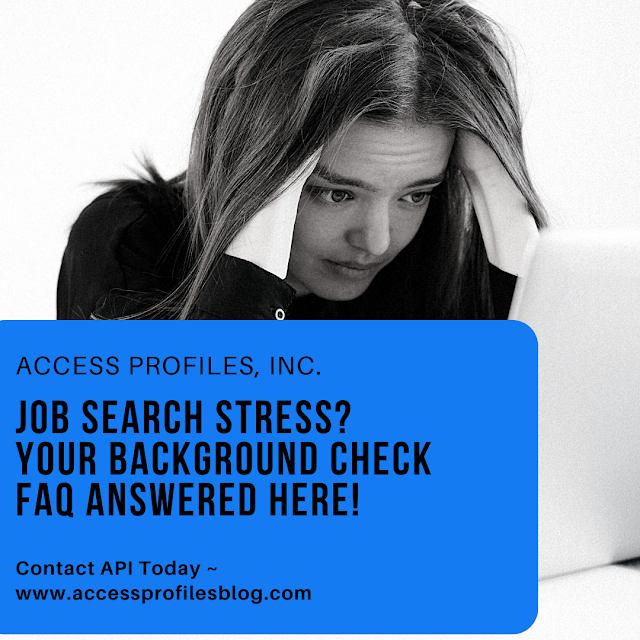
We love knowing which posts resonated with you, our readers, and which just didn’t catch on.
As in years past, our top blog posts centered around Your Job Search and the Employment Background Check, for both those looking for a job and those hiring!
Let’s get started…
Our first popular post centered on your resume and what information will help or hurt your job search.
The question is this…Will unpaid work experience cause a problem in the employer verification part of your background check?

"Unpaid, volunteer, or intern type positions are great additions to any resume ~ especially when they yielded skills or experience that can translate to your career! Including them will not cause any issues when it comes to the employment background check unless you try to pass them off as Paid Positions. That would send off a bright red flag! However, including them as unpaid references will help you as long as when contacted, they have something nice to say. That is why I recommend that you contact any reference long before you list them on your resume. Give them a “heads up” that they may be contacted and ask them if they are willing to give you a good reference. Even finding out in advance what information past employers will give to potential employers or screening companies is in your best interest. This way you will be prepared as to what an employment background check will find!”.
Instead of feeling angst when you apply for any job, your best bet is to be prepared. And it all starts with your resume!
Making sure your resume is completely truthful is the best start. The key is to make sure all your information is clear and accurate, and following these 6 tips will help!
- Make sure your resume is “clean”
- Make sure you never list a degree you haven’t earned
- Make sure all past employments are accurate
- Make sure you know what your past employers will say about you
- Make sure you can mitigate any employment “gaps”
- Make sure you have done a background check on yourself first
Check out more tips on how you can optimize your resume to help you get the job here!
Our next top article explored what past employers can really say about you during the background check.
Do you really know what a former employer will say about you?
"Employers can choose to reveal anything about you, your work performance, and even reason for leaving as long as it is the truth! However, that doesn’t mean that they will!
Due to fear of litigation, many employers choose to only verify a former employee’s dates and title of employment. Some will also share whether that person is eligible for rehire. But what they will share is all dependent upon company policy and is not necessarily consistent company to company.
However, a good background check professional will check and develop references to “fill in the gaps”. That means they will question not only the references listed by an applicant, but also ask those references for another source they could contact who has knowledge about the applicant’s work history and job performance.

And both of these can be accomplished by doing a background check on themselves long before they ever apply for a job”.
So, what can you do to give yourself a heads up on what past employers will share?
Do a little research! Find out the laws in your state and locality governing employer background check guidelines, along with any state and locality where you may have worked!
But despite “best practices” and legal regulations, can you really be 100% sure that you know what a former employer will say about you? That is why your best course of action is to take the time to do a Background Check on yourself first!
Check out the entire article here to learn more about the steps you can take to not only know in advance what a former employer will reveal about you but to also choose the best references in the first place!

In “Can You Edit Your Background Check”, we delved into the question of whether there is any way to change what is found on your employment background check report.
Is it possible to “edit” or change your background check report?
“If you mean can you question or dispute any of the findings contained in a background check, then the answer is Yes. It doesn’t matter whether the investigating company is HireRight or another screening service, you have the right to dispute the findings contained in that check.
However, you cannot simply “edit” that report yourself. If you find that your background check report contains errors, you need to immediately inform the employer that the report has errors. In fact, it is your right to not only dispute the findings but have the chance prove the findings are false or provide information to mitigate them.
So, while you cannot simply “edit” a background check, you have every right to refute the findings and have the chance to prove they are in error”
Find out what you can do before you even apply for a job to make sure your background check will help you get hired, not hurt you by checking out the entire article!

Our next popular post centered on how your social media posts can impact your Job Search.
“Do you post on Social Media? Could what you post be considered “controversial”? Then you need to read this…
What you post online can effect you, your job, and even your family.
That is why you need to understand the potential ramifications of what you post online and learn what you can do to mitigate your exposure.
First you should recognize that nothing you share on Social Media is ever really private!
It is also important that you realize that what you post can impact your Job Search, future promotions, and even your educational goals.
Learn more about how your Social Media posts can impact your Job Search here!

“It is not easy to find the right employee, especially for a Small Business!
Hiring someone with the right skills, experience, and “fit” is, of course, essential. They need to not only be able to do the job, but to do it well.
But finding that talented candidate is not enough. They also need to be a safe and reliable hire. One that will not jeopardize the safety of your company’s existing employees, your customers, or your assets.
And the key to accomplishing this goal is by doing a sound Employment Background Check!
When you screen your potential new hires, you are not only making a cost-effective and sound business decision, you are protecting your business reputation. And here are 4 reasons why......
- Small Businesses have limited budget for hiring and training
- The more “intimate setting” of a Small Business requires safer hires
- Background Checks help Small Businesses avoid litigation
- Small Businesses rely heavily on their reputation
Discover more about how Employment Background checks will help your business hire safely and effectively and how to get the quality checks you need here!”
That rounds out our Top Blog Articles list for this year. We would like to take a moment and thank our readers. We appreciate you taking the time to check out what we have to say and welcome your comments and ideas.
To that end, please share what topics you would like to see covered in this new year. Would would love to hear from you! And if you haven’t already, be sure to Follow our Blog so you don’t miss an article!
Authored by

Have questions about Background Checks, Hiring, or your Job Search? Please check out Our Services and learn more About Us!





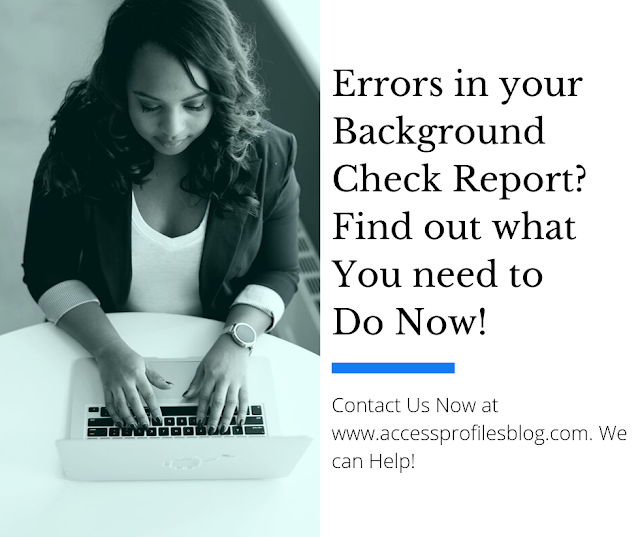
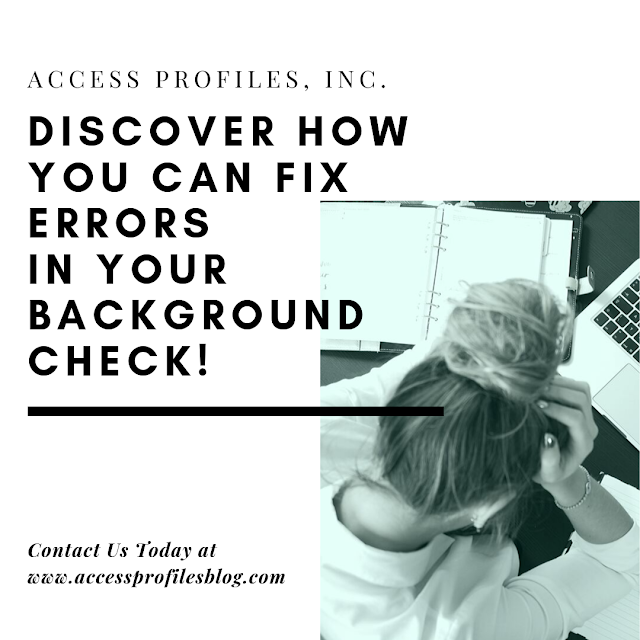



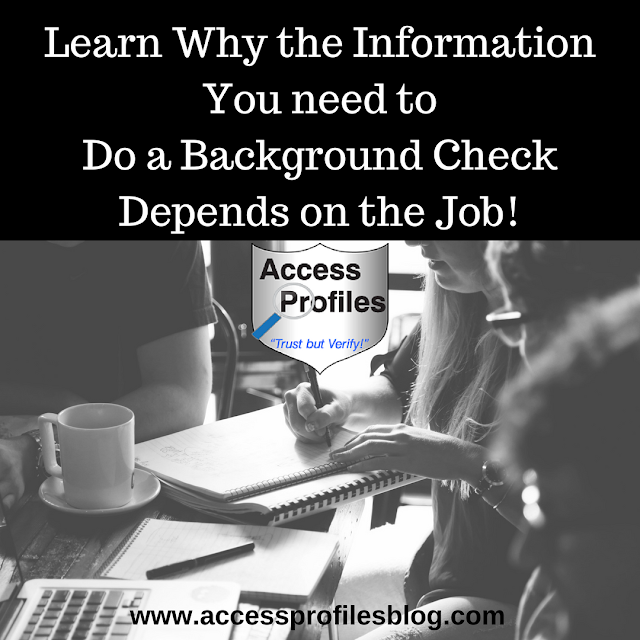



.png)
